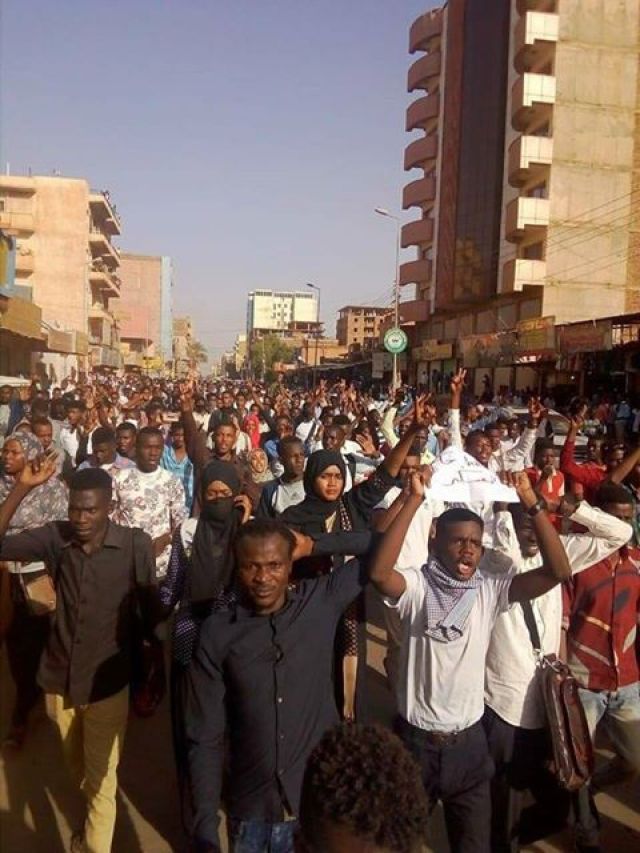
Street protests have broken out in at least seven cities across Sudan, beginning on December 19, in response to the price of bread increasing nearly threefold. They are rocking the repressive regime of Omar al-Bashir and echoing the protests against austerity and price rises that swept the country in January that were brutally repressed.
Military officer al-Bashir seized power in a coup in 1989. His National Congress Party grew out of the Muslim Brotherhood and has imposed Sharia law and Arab chauvinist policies on Sudan's highly diverse multi-ethnic and mutli-religious society.
Green Left Weekly spoke to Younis Hamad Birama and Khalid Hassan about these recent events.
Birama is the chairperson and Hassan a member of the Secretariat of the Democratic Consciousness Forum, a Perth-based democratic and secular organisation founded by Sudanese refugees.
The protests first erupted in the northern railway town and industrial centre of Atbara, a place that often sparks struggle because of its history as a stronghold of the Sudanese Communist Party since the 1960s. Here, the offices of the ruling National Congress Party where burnt down. From there it spread to other cities with simultaneous protests taking place in the capital city Khartoum, including at three of its universities.
Birama explained: "The movement started as a response to rising food and fuel prices, but has grown into a general protest demanding the end of the Muslim Brotherhood regime. People are calling for democracy, freedom, peace and justice. All the major opposition parties have supported the demonstrations and the demand to remove the current terrorist regime and replace it with a national democratic government that represents all Sudanese people, and to prosecute government officials implicated in corruption and human rights violations."
The Sudanese government used to fund the importation of wheat and guarantee a minimum price for local producers which stimulated domestic production. However the termination of these subsidies in line with International Monetary Fund dictates, combined with a fall in value of the Sudanese pound, has pushed up the price of bread and other staples. An inflation rate this year of 60% has further undermined people's purchasing power.
Resolving the underlying economic problems and expanding domestic wheat production cannot be achieved overnight. However Birama and Hassan emphasised that Sudan needs peace and democracy to create lasting solutions.
Instead it has been mired in war, both in the regions of South Kordofan and Blue Nile in the south and in Darfur in the west, which are now largely controlled by the Sudan People's Liberation Movement and Darfurian movements.
While western sanctions have been mostly lifted, Sudan's foreign policy has flip-flopped between supporting Saudi Arabia and its bloody intervention in Yemen to, more recently, seeking rapprochement with Syria through Russia.
Birama concluded: "We need to resolve the issues in the conflict zones and establish peace so the country can move towards policies that will finally enable the Sudanese people to equally share power and benefit from their country's vast wealth."
In a new development, rank-and-file soldiers have sided with protesters in a number of places. While welcome, Hassan emphasised that it was important that the movement is led by civilians and not a section of the army. He is mindful of the experience in neighbouring Egypt where the movement that overthrow Hosni Mubarak came to be dominated, and effectively subverted, by the military. In any case, al-Bashir still has extensive repressive forces — police and special militias — that remain loyal to him
As at December 23 at least least 30 protesters have been killed. Hassan explained: "The internet has been cut off and social media sites blocked. This move makes us believe that the government intends to use serious violence against peaceful protestors. We urge all human rights organisations and people around the world to put pressure on the Sudanese government and protect our people."